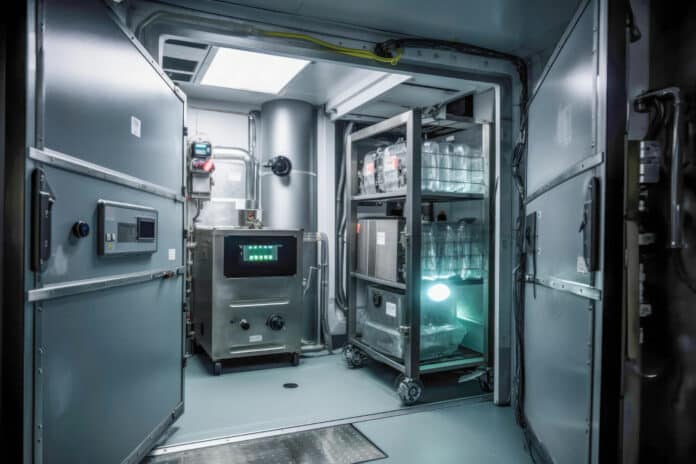Researchers at Washington State University have created a small bioreactor, about the size of a mini-fridge, that can quickly make cancer-fighting white blood cells called T cells. This could make immunotherapy, a promising cancer treatment that uses the body’s immune system to fight cancer, more widely available. The bioreactor can produce these cells 30% faster than current methods, and it’s based on T cells from cattle but is expected to work well with human cells, too.
In 2022, more than 1,400 T-cell therapies were developed, and seven were FDA-approved for various cancers. Chimeric antigen receptor T cell (CAR-T) therapy is promising. However, it faces limitations due to the time and cost involved in T-cell production. Each cancer treatment needs up to 250 million cells for infusion.
First author Kitana Kaiphanliam, a postdoctoral researcher in WSU’s Gene and Linda Voiland School of Chemical Engineering and Bioengineering, said, “The manufacturing demand for this growing number of therapies is not being met, so there is a gap that needs to be filled in terms of biomanufacturing solutions. They need to be upscaled so more people can use them.”
The bioreactor employs centrifugal force to nurture cells in a dense, suspended cloud, consistently immersed in a nutrient-rich medium. This prototype is the culmination of 40 years of research in centrifugal bioreactor design, led by Professor Bernie Van Wie, a Chemical Engineering expert and co-author, under Kaiphanliam’s guidance.
Kaiphanliam said, “It acts like a biosafety cabinet. It can be used when clean manufacturing facilities are unavailable or easily accessible to democratize these cell-based therapies.”
The researchers are making the bioreactor better. They want to add more sections to it to make enough cells for three treatments in three days. They plan to test it with human cells. They are talking to cancer researchers at the Fred Hutchinson Cancer Center about trying it out. Kaiphanliam and co-author Brenden Fraser-Hevlin have also started a company, Ananta Technologies Inc., to sell this technology eventually. Kaiphanliam hopes this technology can lower the cost of life-saving therapies by making them easier to produce.
The research received most of its funding from a National Science Foundation Early-Concept Grant for Exploratory Research (EAGER) award. They also got support from the WSU Office of Commercialization’s Gap Fund, the Palouse Club Cougar Cage pitch competition, and the Washington Research Foundation.
To protect the intellectual property and boost its commercial value, they’ve filed a U.S. patent application. The research team includes Kaiphanlaim, Van Wie, Davis, Eric Barrow from Voiland College, Brenden Fraser-Hevlin, and Zakora Moore from the Voiland School.
The development of this machine represents a remarkable leap forward in the production of cells for cancer treatment, addressing the limitations posed by time and cost factors. With further research, testing, and potential commercialization, this innovation may contribute to reducing the financial barriers associated with life-saving cell-based therapies, offering new hope to cancer patients and revolutionizing the landscape of cancer treatment.
Journal reference:
- Kitana M. Kaiphanliam, Brenden Fraser-Hevlin, et al., Development of a centrifugal bioreactor to rapidly expand CD8 cytotoxic T cells for cancer immunotherapy. Biotechnology Progress. DOI: 10.1002/btpr.3388.
